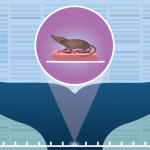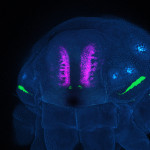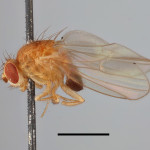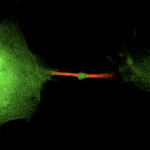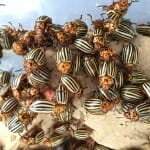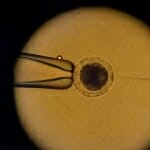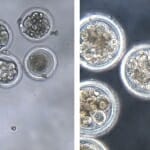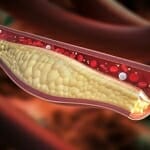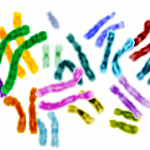Tag Genetics
These jacks-of-all-trades are masters, too: Yeast study helps answer age-old biology question
Researchers mapped the genetic blueprints, appetites, and environments of more than 1,000 species of yeasts, building a family tree that illuminates how these single-celled fungi evolved over the past 400 million years.
The eyes are a gateway to evolution… of daddy longlegs at least.
While some people may first associate daddy longlegs with well, their legs, researchers from the Department of Integrative Biology have been especially focused on the arachnids’ eyes and what they can tell us about their evolution.
Remnant of cell division could be responsible for spreading cancer
The midbody’s involvement in cell signaling and stimulating cell proliferation has been investigated before, but UW researchers wanted to look inside the midbody remnants to learn more.
Holocaust survivor, geneticist, patient advocate remembered for inspiring others
Renata Laxova focused on intellectual and developmental disabilities, prenatal diagnosis of birth defects, cancer genetics, and — above all — the relationships between medical professionals and patients.
Remembering Bella Sobah: ‘She was the greatness in all of us’
“She lived life to the fullest and did so unapologetically. It didn’t matter that she had spinal muscular atrophy. It didn’t matter that she was a Black woman in a society that didn’t fight for her. She was still going to fight for the life she deserved.”
Cells carrying Parkinson’s mutation could lead to new model for studying disease
The edited cells are a step toward studying the degenerative neurological disorder in a primate model, which has proven elusive.
New tool predicts three-dimensional organization of human chromosomes
The predictive tool is a boon for researchers studying how cells control the activity of genes, helping explain how cells achieve their key functions and how they go haywire, as happens in diseases such as cancer.
Radiation-resistant E. coli evolved in the lab give view into DNA repair
Scientists in the University of Wisconsin–Madison Department of Biochemistry are blasting E. coli bacteria with ionizing radiation once a week to watch evolution happen in real time as the bacteria become radiation resistant.
Gene-editing tool now being used to develop better antibiotics
Jason Peters and colleagues have repurposed the gene-editing tool CRISPR to study which genes are targeted by particular antibiotics, providing clues on how to improve existing antibiotics or develop new ones.


